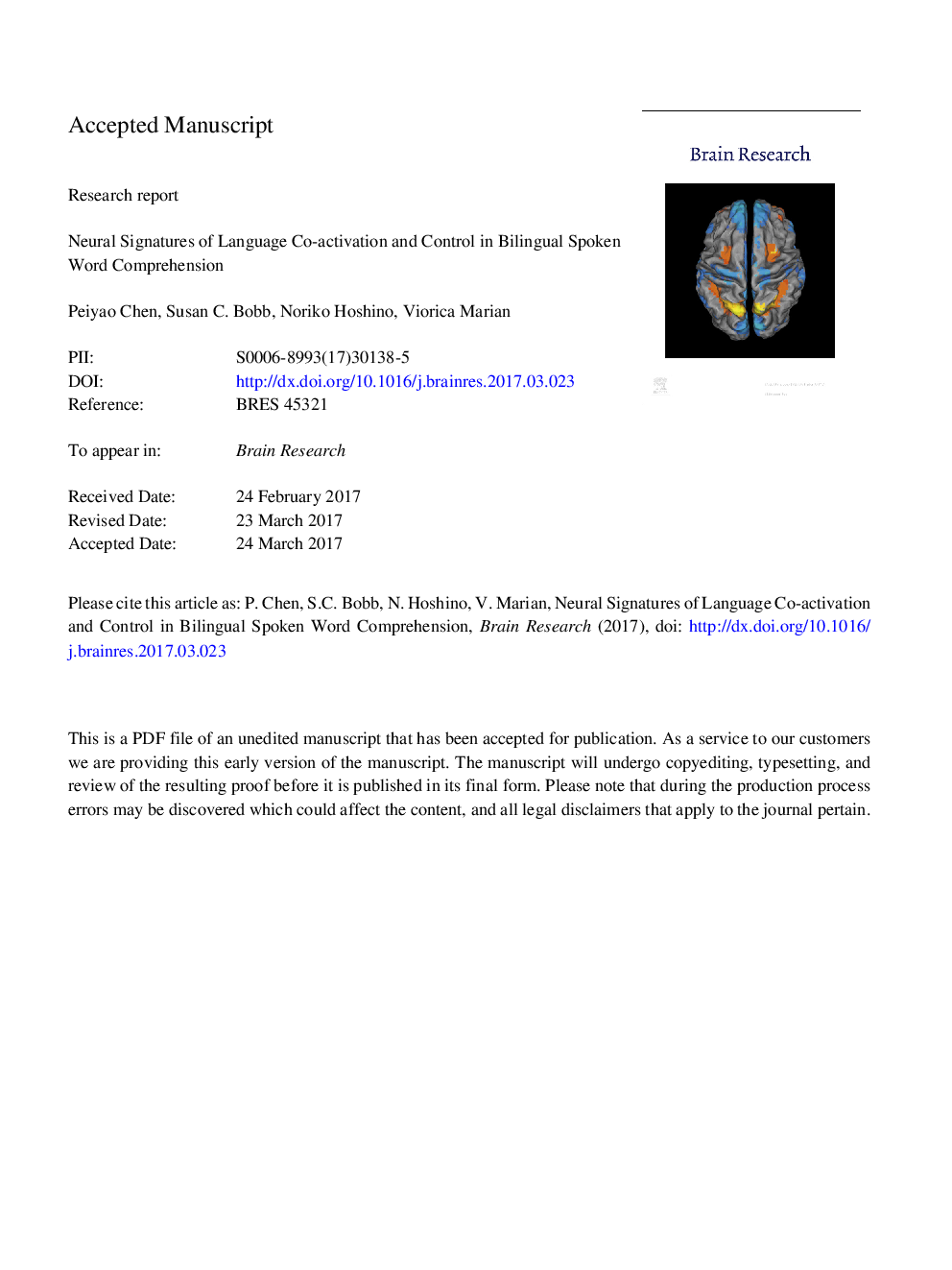ترجمه فارسی عنوان مقاله
امضاهای عصبی از همکاری فعال و کنترل زبان در زبان گفتاری دو زبانه
عنوان انگلیسی
Neural signatures of language co-activation and control in bilingual spoken word comprehension
| کد مقاله | سال انتشار | تعداد صفحات مقاله انگلیسی |
|---|---|---|
| 134039 | 2017 | 66 صفحه PDF |
منبع

Publisher : Elsevier - Science Direct (الزویر - ساینس دایرکت)
Journal : Brain Research, Volume 1665, 15 June 2017, Pages 50-64

